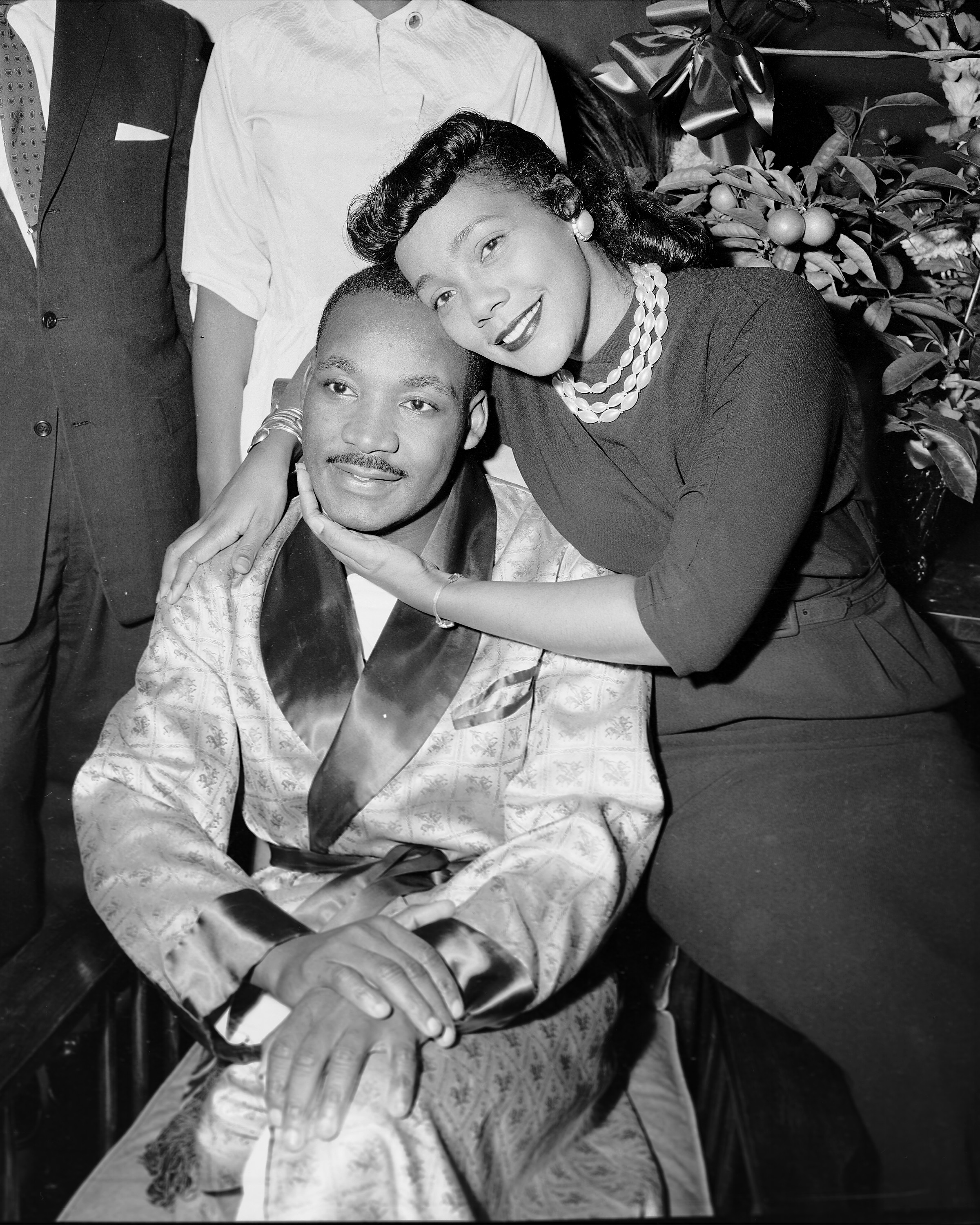
Black American civil rights leader Martin Luther King Jr. addresses crowds during the "March On Washington for Jobs & Freedom" at the Lincoln Memorial, Washington, D.C., U.S., August 28, 1963. /Getty
Black American civil rights leader Martin Luther King Jr. addresses crowds during the "March On Washington for Jobs & Freedom" at the Lincoln Memorial, Washington, D.C., U.S., August 28, 1963. /Getty
An unsettling short film titled "MLK/FBI" landed on several streaming platforms on January 15, the day celebrated as the Martin Luther King Jr. Day (MLK Day) in the United States.
The documentary, by Emmy award-winning Sam Pollard, narrates a shameful chapter of American espionage from the 1960s, the decade that witnessed the awakening of the Black community against segregation and suppression.
Based on the recently declassified files of the U.S. Federal Bureau of Investigation (FBI), it exposes a snooping campaign against the Black American non-violent civil rights crusader aimed at concocting personal scandals and undermining the movement.
It all started with the 1963 March On Washington For Jobs and Freedom, where he delivered his iconic "I have a dream" speech in front a 250,000-strong crowd at the Lincoln Memorial, according to the 104-minute movie.
The silence of the good people is more dangerous than the brutality of the bad people.
- Martin Luther King Jr.
Two days after the protest, the then FBI domestic intelligence chief William Sullivan advised in an internal memo: "We must mark him now, if we have not done so before, as the most dangerous Negro of the future in this Nation from the standpoint of communism, the Negro and national security."

Leaders of the "March On Washington for Jobs & Freedom" marching with signs in Washington, D.C., U.S., August 28, 1963. /Getty
Leaders of the "March On Washington for Jobs & Freedom" marching with signs in Washington, D.C., U.S., August 28, 1963. /Getty
Fearing the rise of a "Black messiah," the then FBI director J. Edgar Hoover gave his blessings to a sophisticated 24/7 surveillance operation to dig dirt on King.
His sex life was closely monitored – phones tapped and hotel rooms rigged with spy cameras.
The tapes failed to establish a national security threat but resulted in evidence of relationships with his various girlfriends.
The film reveals that Sullivan sent a package of King's sex tapes to his residence with a letter presenting suicide as the only available option to spare him potential public embarrassment. The parcel was received by his wife.
The now-uncensored 1964 letter reads: "There's only one thing left for you to do. You know what it is."
Your 'honorary' degrees, your Nobel prize (what a grim farce) and other awards will not save you. King, I repeat you are done. There's only one thing left for you to do.
- An excerpt from the FBI letter written to Martin Luther King Jr. in 1964
The unflappable King didn't budge and went on to intensify the fight for equal rights for all. But the FBI's unscrupulous mission only ended with his assassination in 1968.
If you can't fly then run, if you can't run then walk, if you can't walk then crawl, but whatever you do you have to keep moving forward.
- Martin Luther King Jr.

Martin Luther King Jr. and his wife Coretta Scott King during an interview in Harlem Hospital, New York, U.S., September 30, 1958. /Getty
Martin Luther King Jr. and his wife Coretta Scott King during an interview in Harlem Hospital, New York, U.S., September 30, 1958. /Getty
The tapes are under seal by the National Archives until 2027.
"I knew they were spying, but I didn't know the extent of it," said Pollard in a TV interview, adding that his film unveils how American authorities came together to destroy King.
In the documentary, James Comey, who served as FBI director under Barack Obama from 2013 to 2017, described it as the "darkest period of the bureau's history."

